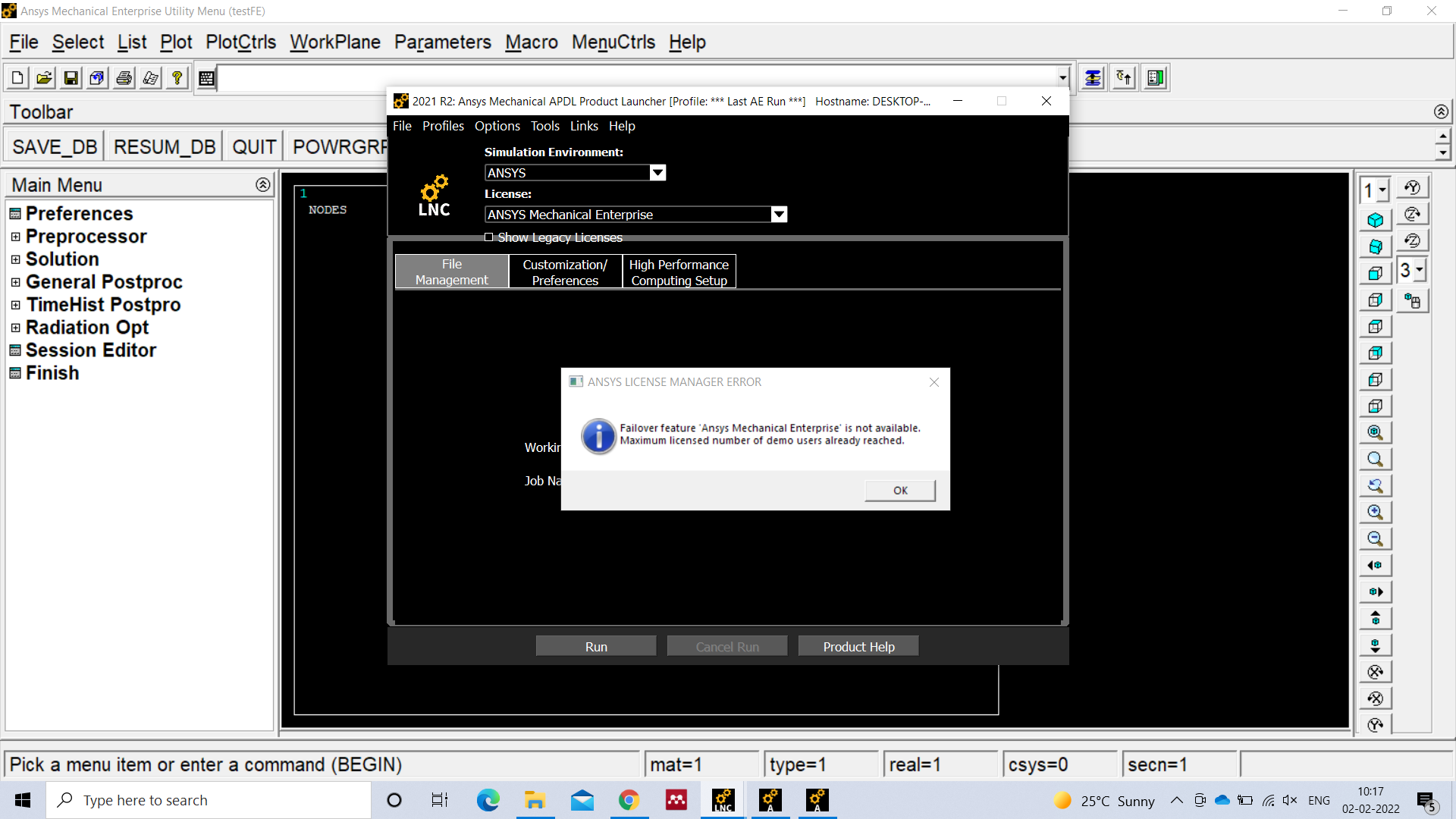TAGGED: Ansys-student-2021-R2, failover-ansys, license-issue
-
-
February 2, 2022 at 4:58 am
Ansuman_Sahu
SubscriberCan anyone suggest how to deal with this error? (PFA screenshot for reference). I am getting this error while trying to open more than one new/previously saved jobs on ANSYS APDL. I am facing this issue now on ANSYS Student 2021 R2 and 2022 R1. But I never faced such issues in Ansys Student 2020 R2 where I was easily able to have multiple files open simultaneously. There was no mention of any such issue anywhere on the internet. Any suggestion/directions on how to resolve this would be of great help.
February 4, 2022 at 9:17 ambombsaabb
SubscriberHi Ansuman,
I am Sorry I am unable to answer your query.
/forum/discussion/25674/defining-initial-temperature-of-newly-activated-element-in-current-load-step#latest
I am facing problems to understand the *do loop of APDL, wanting to use it for activating/birth of elements in ANSYS workbench mechanical to simulate an LPBF Process.
I am giving heat generation to elements and wish to activate them in a path, can you help me?
Best Regards
Bomb
February 4, 2022 at 11:36 amAshish Khemka
Forum Moderator
The message indicates that you do not have the Enterprise license.
Regards Ashish Khemka
Viewing 2 reply threads- The topic ‘Unable to open multiple saved jobs in Ansys APDL’ is closed to new replies.
Ansys Innovation SpaceTrending discussionsTop Contributors-
3587
-
1193
-
1086
-
1068
-
952
Top Rated Tags© 2025 Copyright ANSYS, Inc. All rights reserved.
Ansys does not support the usage of unauthorized Ansys software. Please visit www.ansys.com to obtain an official distribution.
-
The Ansys Learning Forum is a public forum. You are prohibited from providing (i) information that is confidential to You, your employer, or any third party, (ii) Personal Data or individually identifiable health information, (iii) any information that is U.S. Government Classified, Controlled Unclassified Information, International Traffic in Arms Regulators (ITAR) or Export Administration Regulators (EAR) controlled or otherwise have been determined by the United States Government or by a foreign government to require protection against unauthorized disclosure for reasons of national security, or (iv) topics or information restricted by the People's Republic of China data protection and privacy laws.












